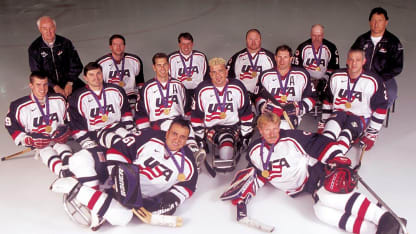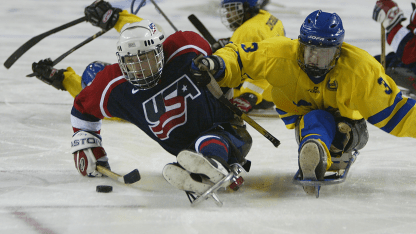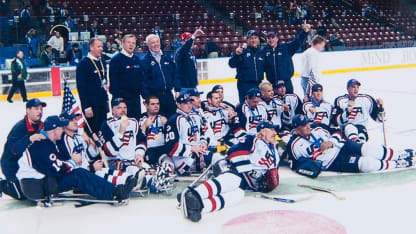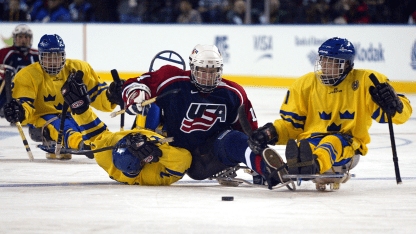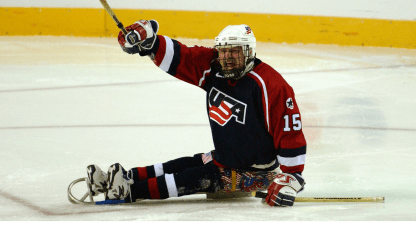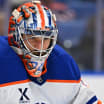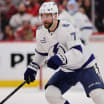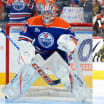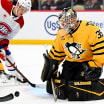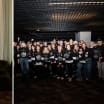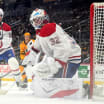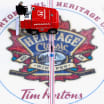Kip St. Germaine spoke in awe about the short list of teams that are enshrined in the United States Hockey Hall of Fame.
“There’s the 1998 Olympics women’s gold medal team, on the men’s side there’s the 1996 World Cup of Hockey gold medal team and the 1960 and 1980 Olympics men’s gold medal teams,” St. Germaine said. “It’s some pretty fine company right there.”
St. Germaine and teammates from the 2002 U.S. Paralympic Sled Hockey Team that made history in Salt Lake City as the first American team to win gold in the Paralympic Winter Games will join that august group in the U.S. Hockey Hall of Fame.
The team will be inducted at a dinner and ceremony Wednesday in Pittsburgh alongside retired NHL forwards Matt Cullen and Kevin Stevens and Olympic gold medalist Brianna Decker. The late Major Frederic McLaughlin, a pioneer in American hockey in the Midwest, will also be enshrined.
“It’s an honor,” said St. Germaine, who was a defenseman on the team. “We were just trying to have fun playing the game and hoping at that time that people would take us seriously – that sled hockey was really hockey. Instead of standing on our skates, we sat on our skates.
“We tried to be relevant and convince not only ourselves but the rest of the country and the world that it’s a legitimate sport.”
They accomplished that, and more.
